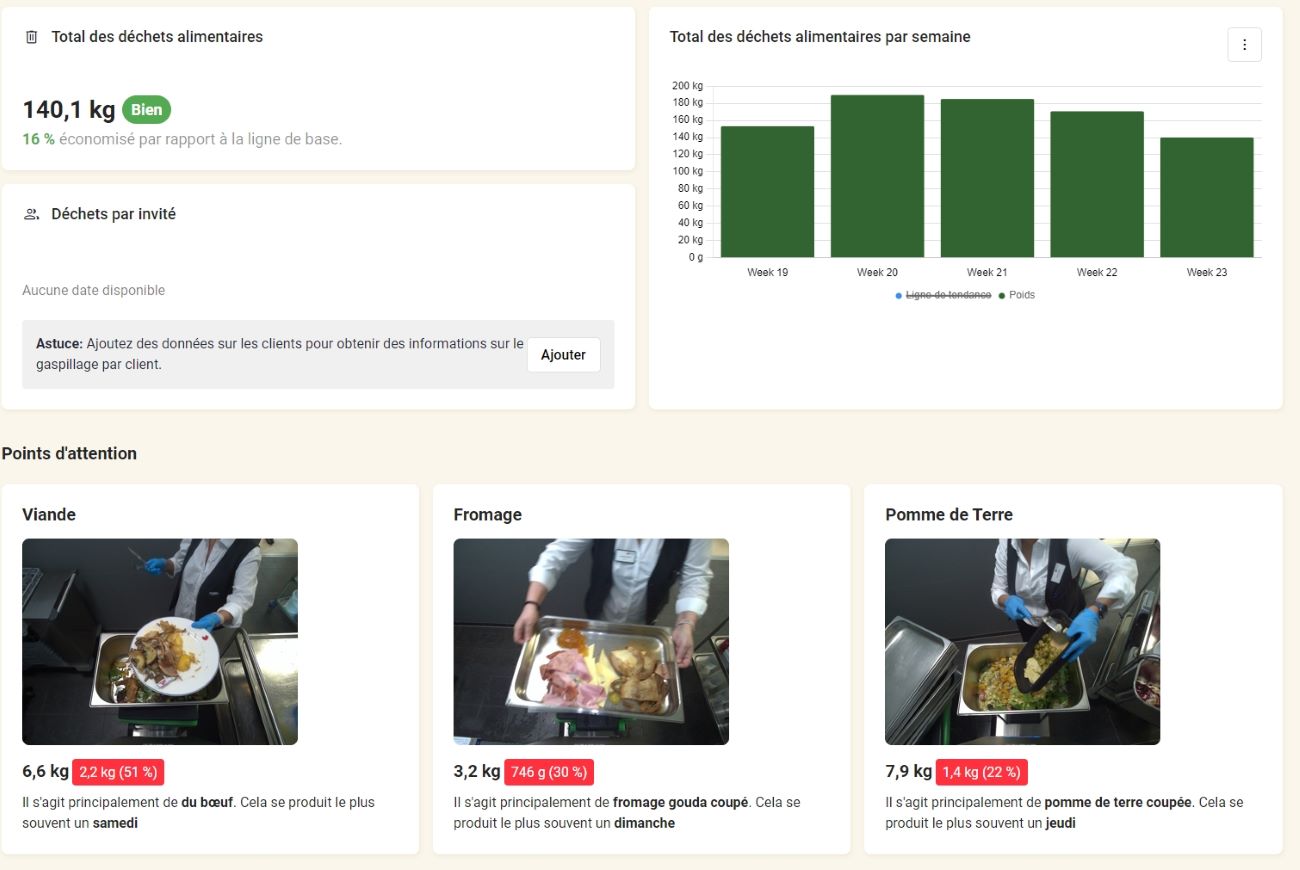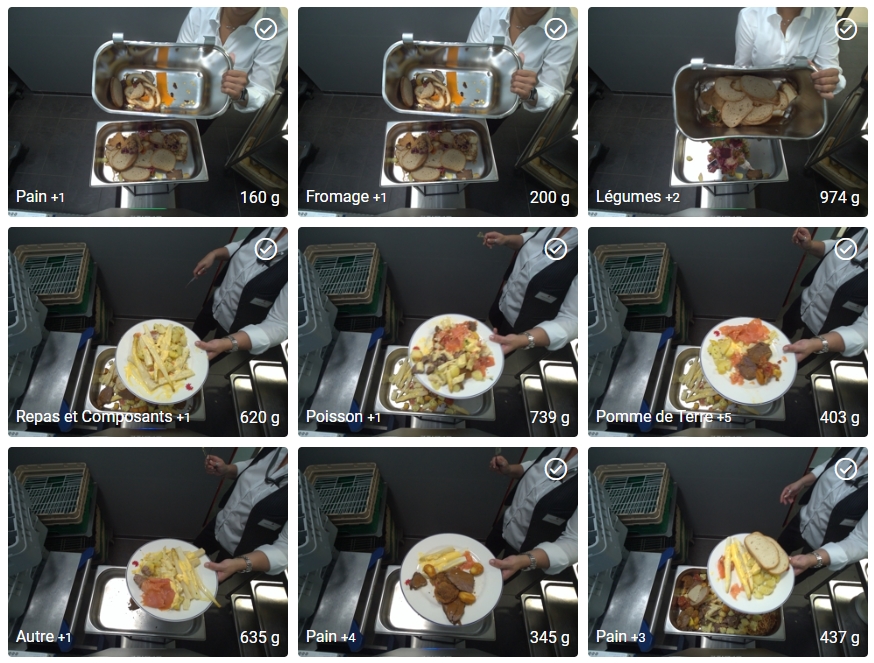The city of Differdange is taking a big step towards data driven food waste management with its new pilot project, a result of shared decision making between the municipality and the Differdange Food Council. The initiative uses smart bins to track and reduce food waste in a public kitchen. The pilot project is implemented in the framework of the FUSILLI project and the NetZeroCities commitments of Differdange towards climate neutrality by 2030.
The Food Waste Problem
According to Differdange’s waste expert Philippe Reuter, “initial observations and data provided by the national government showed that a lot of food was being wasted in Differdange. However, we didn’t have enough detailed information to make good decisions. We knew there was a lot of potential to collect data, especially in places like canteens and hotels, but we needed better tools to track and understand the waste”.
Data collection and innovative solutions
Orbisk, a Dutch start-up, became the key partner of the project. Their intelligent bins use AI technology to collect and analyse data on food waste. These devices are easy to set up and start working immediately, helping big kitchens to adjust their menus and workflows to reduce waste effectively. In Differdange, the city installed two bins in a public kitchen managed by Servior, the public establishment responsible for housing for seniors in Luxembourg.
“Orbisk is great because it not only provides the device but also offers support and advice. Collecting data without knowing what to do with it doesn’t make sense. Workers in a public kitchen are already busy getting the food on the table and getting their work done and this device tracks information that can adapt workflow, menu, purchases, to the point of a proper food waste reduction”.

Photo:Orbisk smart bins monitoring platform

Photo: Orbisk AI scans waste composition
First results
After the first two weeks of tracking waste, Philippe Reuter reacted to the first images and statistics collected by the smart waste bins: “You know there’s a lot of waste, but when you see the photos and the amount of food thrown away, you realize something has to be done”.
Looking Ahead
The success of the Intelligent Bins project could encourage other sectors to adopt similar systems. The data showed that one kitchen is losing 50.000 to 60.000 euro a year due to food waste, highlighting the economic impact of this issue. Moreover, the data collected is shared with Dr. Rachel Reckinger, representing the University of Luxembourg in the FUSILLI project in Differdange: “Beyond the shock effect of visualising good food that is thrown out and the add-up of those quantities, forming the empirically sound basis for more precise and more responsible waste management by actors who really start to feel an ethical commitment that “something has to be done”, there is an interesting research element about this process. By collecting statistics over time, the professionals’ purchasing adaptation can be tracked, based on collective learning about which recipes generate which type of waste, leading to reflections about meal composition, portion size, moments in the day, the composition and preferences of target groups, communication with customers and enhanced identification with stewardship”.
Beyond technology, the pilot project can also help to raise awareness and change how people think about waste. “I would be happy if everyone started to care about what they throw away and think before they buy. Small steps can lead to big changes”, said Reuter.